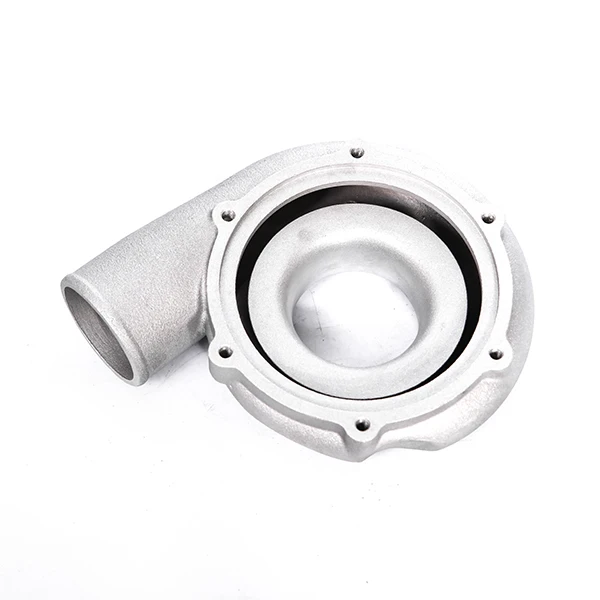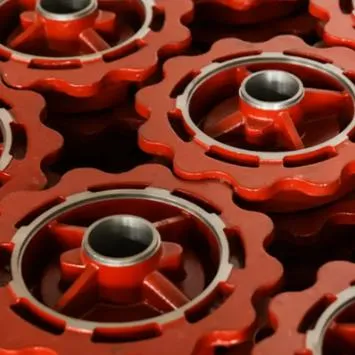Mobile:+86-311-808-126-83
Email:info@ydcastings.com
Gen . 10, 2025 09:02
Back to list
casing in centrifugal pump
Casing in centrifugal pumps is an integral component that often doesn’t get the attention it deserves. This crucial element not only houses the impeller but also plays a significant role in dictating the performance, efficiency, and lifecycle of the pump. Understanding the intricacies of pump casing can profoundly impact the selection process and operation of centrifugal pumps in various industrial applications.
Material selection for pump casing is another critical factor affecting reliability and longevity. Casing materials need to withstand the chemical properties of the pumped fluid, operating temperatures, and pressure situations. Common materials include cast iron, ductile iron, stainless steel, and various polymers, each suitable for different applications. For instance, stainless steel offers excellent corrosion resistance, making it ideal for pumping aggressive chemicals, whereas polymers might be utilized in less demanding water applications due to their cost-effectiveness and corrosion resistance. Regular maintenance and inspection of pump casings is necessary to prevent leaks, erosions, and other potential failures. Maintenance experience shows that neglecting the condition of the casing can lead to increased wear and energy consumption, and eventually, unplanned downtimes, profoundly impacting operations and costs. Engaging in routine checks can avert potential issues, ensuring that the pump runs smoothly over its designated lifespan. Experienced engineers also advise monitoring vibration and noise levels, as abnormal values could indicate issues with not only the casing but the pump’s overall operation. Centrifugal pump casing, though often overlooked, represents a core component that requires careful consideration and expertise during selection and operation. By addressing the nuances in casing design, material selection, and maintenance, industries can not only optimize pump performance but also ensure long-term reliability and cost-efficiency. When well-informed decisions are made regarding pump casing, the whole pump system is better positioned for success, translating to improved operational uptime and energy, and ultimately advancing the entirety of fluid management processes.


Material selection for pump casing is another critical factor affecting reliability and longevity. Casing materials need to withstand the chemical properties of the pumped fluid, operating temperatures, and pressure situations. Common materials include cast iron, ductile iron, stainless steel, and various polymers, each suitable for different applications. For instance, stainless steel offers excellent corrosion resistance, making it ideal for pumping aggressive chemicals, whereas polymers might be utilized in less demanding water applications due to their cost-effectiveness and corrosion resistance. Regular maintenance and inspection of pump casings is necessary to prevent leaks, erosions, and other potential failures. Maintenance experience shows that neglecting the condition of the casing can lead to increased wear and energy consumption, and eventually, unplanned downtimes, profoundly impacting operations and costs. Engaging in routine checks can avert potential issues, ensuring that the pump runs smoothly over its designated lifespan. Experienced engineers also advise monitoring vibration and noise levels, as abnormal values could indicate issues with not only the casing but the pump’s overall operation. Centrifugal pump casing, though often overlooked, represents a core component that requires careful consideration and expertise during selection and operation. By addressing the nuances in casing design, material selection, and maintenance, industries can not only optimize pump performance but also ensure long-term reliability and cost-efficiency. When well-informed decisions are made regarding pump casing, the whole pump system is better positioned for success, translating to improved operational uptime and energy, and ultimately advancing the entirety of fluid management processes.
Next:
Latest news
-
Impeller Technology That Powers Precision in Pump SystemsNewsMay.22,2025
-
Valve Durability Begins with Quality Cast Iron ComponentsNewsMay.22,2025
-
Performance Cooling with Advanced Automobile Water Pump SolutionsNewsMay.22,2025
-
How Motor Housing and Oil Pans Shape Engine PerformanceNewsMay.22,2025
-
How Metal Castings Drive Modern Manufacturing EfficiencyNewsMay.22,2025
-
Exploring the Engineering Behind Valve Body CastingsNewsMay.22,2025
Related PRODUCTS











